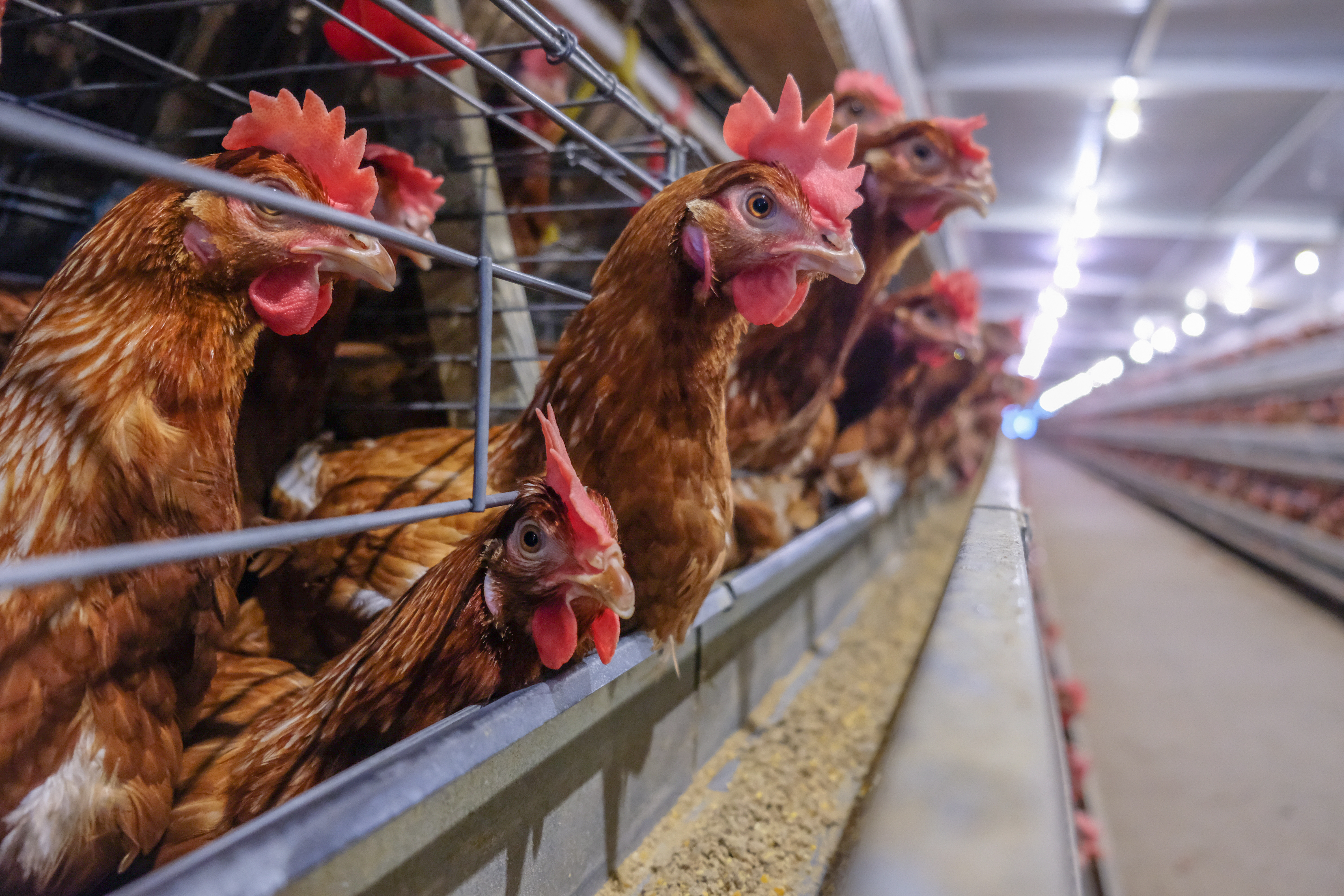Everyone Knows Caging Hens for Eggs is Bad. Why Do US Republicans Want to ‘Reverse This’? – News18
In recent years, the grocery store egg aisle in the US has seen a significant shift towards cage-free eggs, marking progress in the fight against animal factory farming. However, this positive change might be at risk due to a new bill proposed by GOP (Republican) members of Congress.
The Ending Agricultural Trade Suppression (EATS) Act, introduced by Sen. Roger Marshall and Rep. Ashley Hinson, aims to prevent state and local governments from setting standards for agricultural products imported from other states. The vague language of the bill could have far-reaching consequences, potentially endangering decades of progress in animal welfare and threatening a wide range of state and local laws, as per a report by Vox.
1) Growing Cage-Free Movement
The cage-free egg movement has gained momentum, with close to 40 per cent of eggs sold in the US coming from hens not confined in tiny cages, as per the report. Eight states have already banned the sale of eggs from caged hens, and some have extended these prohibitions to include pork and veal from cruelly confined animals.
2) What’s Wrong With the Caged Hens’ Industry?
The caged hen egg industry has been criticized for its inhumane treatment of hens and the extensive animal abuses that occur within these confinement systems. Hens are kept in small wire cages, with each bird typically having only the space of a standard sheet of paper or even less. The lack of space prevents them from engaging in natural behaviors like stretching their wings, dust bathing, and perching, leading to immense physical and psychological stress.
Caged hens are unable to move freely, resulting in muscle and bone weakness. Many of them suffer from painful conditions such as osteoporosis due to the lack of exercise.
The overcrowded and unsanitary conditions in battery cages contribute to health problems among hens. Outbreaks of diseases can spread quickly within the confined space, leading to suffering and death.
To prevent hens from pecking each other in the cramped environment, a practice called debeaking is commonly used. This involves cutting or burning off a portion of the hen’s beak, causing pain and distress.
The crowded and unnatural environment of battery cages leads to increased stress and aggression among hens. They may exhibit abnormal behaviors, such as feather plucking and cannibalism.
The stress and harsh conditions in battery cages often lead to a higher rate of premature death among hens, cutting short their natural lifespan.
In the egg industry, male chicks born to laying hen breeds are considered economically unviable as they don’t lay eggs. They are often killed shortly after hatching, leading to large-scale euthanization or other forms of mass killing.
Due to increasing awareness of these issues and consumer demand for more humane egg production, there has been a notable shift towards cage-free and more animal-friendly egg production methods in recent years.
3) What Does the EATS Act Promote?
The EATS Act, proposed by GOP members, could jeopardize the progress made in animal welfare by prohibiting state and local governments from setting standards for agricultural products brought in from other states. The bill’s broad and vague language raises concerns about its potential effects on existing laws.
If the EATS Act becomes law and survives legal challenges, it could expose cage-free laws to lawsuits, undermining the welfare of animals suffering on factory farms. Other farmed animal welfare laws, such as those banning the sale of foie gras in California and New York City, could also be at risk.
The EATS Act’s sweeping scope could extend far beyond animal cages, affecting around 1,000 state and local laws governing various agricultural aspects, including timber, beef, and crops. It may even impact state prohibitions on certain recreational drugs not federally banned, the report states.
4) Potential Legal Challenges
The EATS Act allows anyone affected by a regulation to sue and block its enforcement, putting the burden of proof on the state or local government instead of the litigant. This reversal of the standard for preliminary injunctions raises concerns about the potential misuse of the law.
While the sponsors of the EATS Act aim to undo cage-free laws, many agricultural regulations are designed to protect consumers and farmers, improve food safety, and prevent disease spread across state lines.
The EATS Act gains support from the pork industry, as they seek relief from complying with California’s cage-free law, Proposition 12, which the Supreme Court recently upheld.
5) Fierce Opposition
Various advocacy groups, including those supporting independent farmers, animals, and state and local governments, oppose the EATS Act. They fear that this bill could be incorporated into the farm bill, posing a significant threat to agricultural practices and animal welfare.
With inputs from agencies
For all the latest world News Click Here


